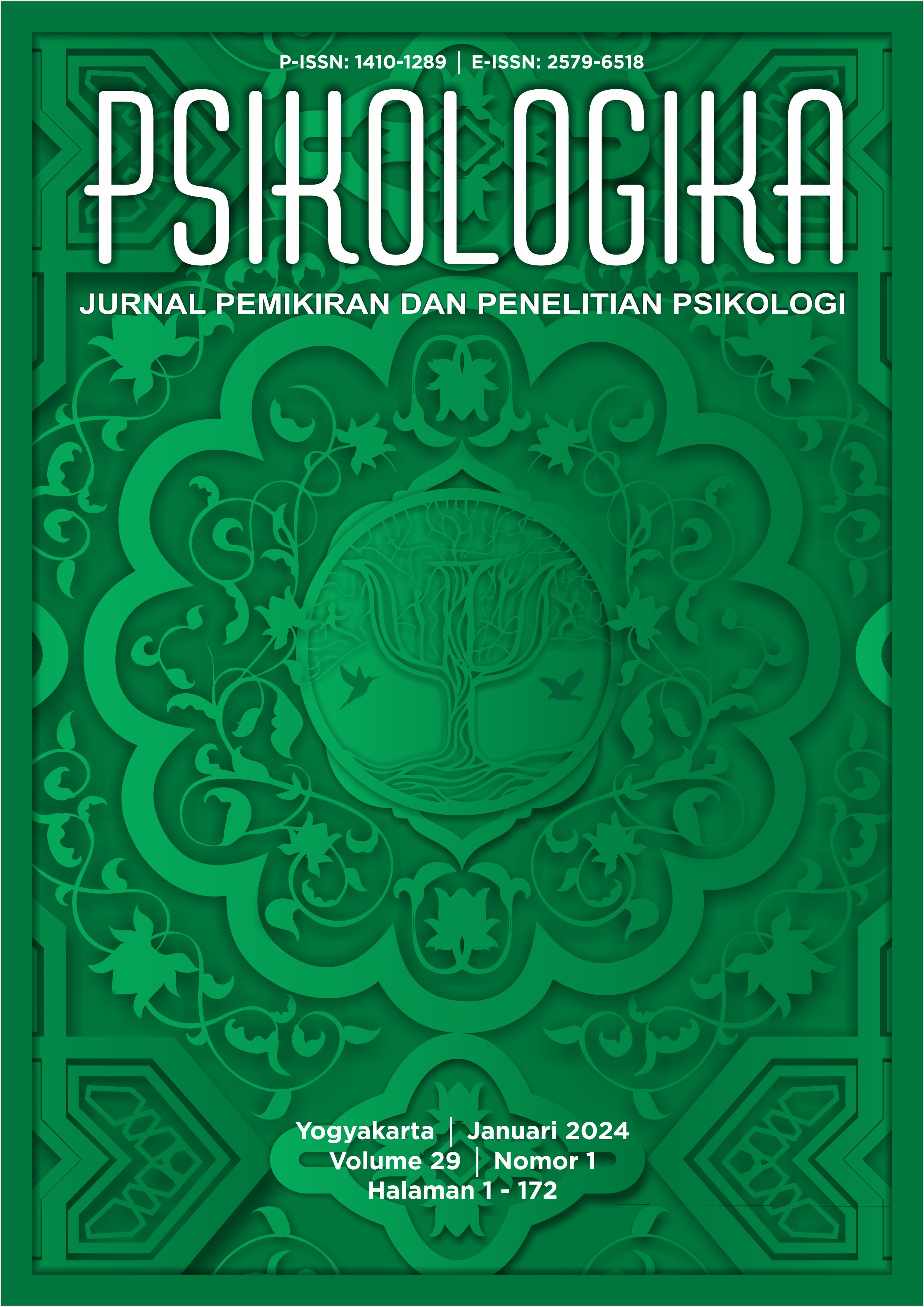Main Article Content
Abstract
Help provision, often perceived as an act of kindness, is often resisted or rejected by the recipients. Preliminary research examined the resistance showed by help recipients, with none conducted on the resistance perceived by observer groups. Therefore, this research aimed to examine the effect of motives (prosocial versus strategic) and audience (private versus public) on resistance to intergroup helping through the perspective of observer. Data were collected from 1,752 participants recruited using the convenient sampling method. The first hypotheses showed that the motives with values of B = .30, t = 7.66, p < .001, and the audience comprising B = .46, t = 11.66, p < .001, significantly resulted in higher levels of observer positive evaluations of intergroup helping. The second hypothesis showed that observer positive evaluations of intergroup helping significantly decreased observer resistance to intergroup helping, B = -.28, t = -10.40, p < .001. The third hypothesis showed that the positive evaluation of intergroup help significantly mediated the effect of prosocial motives (indirect effect: B = -.09, the lower limit of the confidence interval [LLCI] = -.11, upper limit of the confidence interval [ULCI] = -.06) and private audiences (indirect effect: B = -.13, LLCI = -.16, ULCI = -.10) in reducing observer resistance to intergroup help. These empirical results collectively emphasized the significance of a group reputation or image in extending help to others, influencing the perspective of observer regarding accepting or rejecting intergroup aid.
Keywords
Article Details
Copyright (c) 2024 Ali Mashuri, Sofia Nuryanti

This work is licensed under a Creative Commons Attribution-ShareAlike 4.0 International License.
Authors who publish with this journal agree to the following terms:
- Authors retain copyright and grant the journal right of first publication with the work simultaneously licensed under a Creative Commons Attribution-ShareAlike 4.0 International License that allows others to share the work with an acknowledgment of the work's authorship and initial publication in this journal.
- Authors are able to enter into separate, additional contractual arrangements for the non-exclusive distribution of the journal's published version of the work (e.g., post it to an institutional repository or publish it in a book), with an acknowledgment of its initial publication in this journal.
- Authors are permitted and encouraged to post their work online (e.g., in institutional repositories or on their website) prior to and during the submission process, as it can lead to productive exchanges, as well as earlier and greater citation of published work (See The Effect of Open Access).




